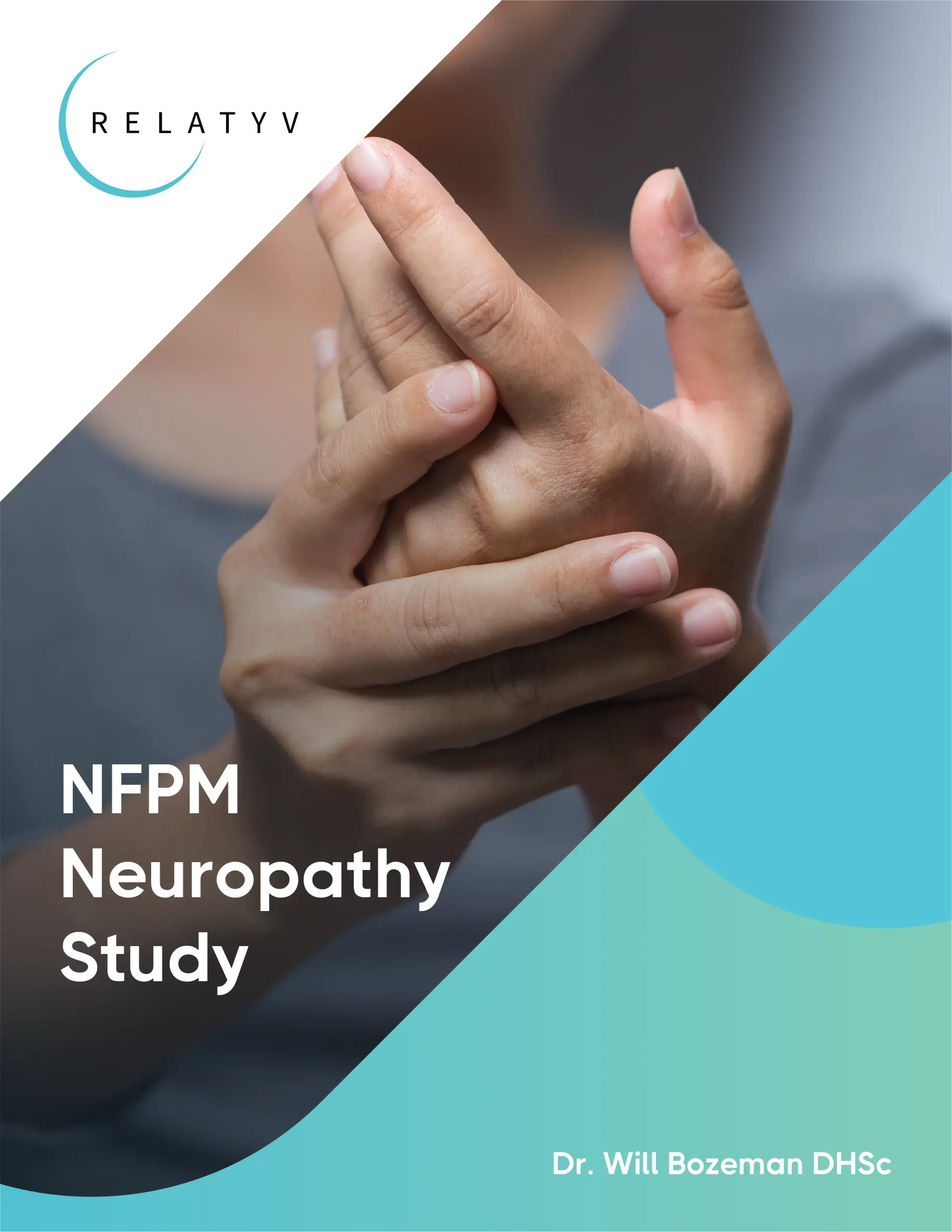Endometriosis

Addressing Endometriosis Pain With Intercourse
Read More
June 30, 2023
Did you know, according to the World Health Organisation, endometriosis currently impacts the lives of approximately 190 million women of childbearing age worldwide? This chronic condition occurs when the uterine lining (endometrial tissue) abnormally grows outside the uterus, leading to a wide range of symptoms that can significantly impact your daily life.
The causes and symptoms of endometriosis can vary from person to person, making each individual’s experience with the condition unique. Many women struggle with the painful symptoms of endometriosis throughout their daily lives, although perhaps they do not know they have the condition.
Pain and other symptoms can be life-impacting, causing missed days of study or work, forcing you to forgo the activities you love, and potentially leading to a complex emotional impact.
Remember, endometriosis doesn’t have to control your life, and you don’t have to rely solely on medication or surgery for relief. We will explore how Relatyv can help you take control of your endometriosis pain, providing you with a structured and whole-person approach to finding long-term relief.
In this article, we discuss the range of symptoms commonly associated with endometriosis. We will also highlight the health complications related to severe endometriosis if left untreated. By gaining an understanding of these symptoms, you can be better equipped for early detection and intervention, improving your overall quality of life.
Painful menstrual periods, medically known as dysmenorrhea, are the primary symptom of endometriosis. Dysmenorrhea involves intense menstrual cramps, which are more severe than the abdominal discomfort typically experienced throughout menstruation.
Dysmenorrhea, as seen in endometriosis, occurs when the excess endometrial tissue, both inside and outside the uterus, responds to the regular hormonal changes of the menstrual cycle.
The inflammatory response throughout menstruation causes severe abdominal pain and cramping. It is not uncommon that pain and cramps begin before menstrual bleeding and persist over several days.
Some women find the pain extends beyond the abdomen, radiating to the lower back or around the thighs and legs. This occurs because, in some cases, the abnormally growing uterine tissue can irritate the sciatic nerve, which runs from the lower back down into the legs.
If your menstrual pain is significantly interfering with your quality of life, it is essential to consult your medical provider and discuss your concerns about endometriosis as the underlying cause.
Another familiar symptom for women with endometritis is pain during sexual intercourse or dyspareunia. The presence of abnormal endometrial tissue surrounding the ovaries, fallopian tubes, pelvic floor lining, and vaginal walls can cause discomforts such as deep pelvic pain or burning sensations, both during and after penetrative sex.
Depending on the severity of endometriosis, painful symptoms may be short-lived, last for hours, or potentially lasting for days. It is important to know that any pelvic pain associated with sexual intercourse is likely to be caused by an underlying condition such as endometriosis. Communicating openly with your partner and healthcare provider is critical in addressing the issue.
Irregular or painful bowel motions, medically termed Dyschezia, can be a frustrating and potentially debilitating symptom of endometriosis. Abdominal cramping, stabbing pains, diarrhea, and constipation can occur due to the endometrial growth outside the uterus adhering to the bowel, rectum, or bladder.
Hormone fluctuations during menstruation will likely exacerbate these symptoms as the rogue endometrial tissue thickens and inflames, further impacting the surrounding abdominal organs. If you have noticed a change in your bowel habits or are experiencing pain and discomfort, discussing these symptoms with your healthcare provider is essential.
It is important to note that you should seek urgent medical attention if you notice any blood in your stool when menstruating. In rare cases, endometriosis may cause small tears or fistulas to the tissue between the vaginal canal and the rectum.
The medical term menorrhagia describes the event where excessive bleeding occurs during menstruation. Women with endometriosis may notice that they are bleeding unusually heavily throughout their periods or that bleeding occurs over a prolonged time (longer than five days).
Excessive bleeding in endometriosis occurs as a result of the surplus endometrial tissue that also sheds and bleeds with each menstrual cycle.
Experiencing a heavy menstrual flow can cause other debilitating symptoms such as excessive cramping and bloating, iron deficiency, fatigue, and weakness. Additionally, you may notice bleeding between your scheduled cycle (spotting).
If you have noticed a change in your menstrual bleeding or are experiencing heavy flows that require the need to change sanitary items more frequently, it is important to consult with your healthcare provider. Discussing your symptoms and exploring the underlying cause, including the possibility of endometriosis, can provide guidance towards early management of the condition.
Endometriosis can have a significant impact on a woman’s reproductive health. The rogue endometrial tissue growing outside of the uterus can lead to scar tissue formation, adhesions, and structural abnormalities that may impact the effectiveness of reproductive organs.
The ovaries’ ability to release eggs and the successful attachment of a fertilized egg to the uterine wall can be hindered, making it challenging to conceive successfully.
Remember, if you have endometriosis, it is still possible to fall pregnant, and having an effective management plan can assist with your journey. If you have a history of reproductive issues, have a family history of endometriosis, or are finding it difficult to conceive, consider seeking medical advice on ways to treat your underlying condition to optimize your reproductive health.
While there are a number of conditions that cause gastrointestinal upset and digestive problems, these frustrating symptoms are also commonly associated with endometriosis:
The abnormal growth of uterine tissue in endometriosis can spread beyond the uterus and directly impede the digestive system. As this tissue grows, sheds, and bleeds in response to the normal hormonal cycle, it can lead to inflammation and the development of scar tissue or cysts in the surrounding digestive structures.
This then causes disruption of normal bowel function and digestion and the development of the above symptoms.
If you experience any of the above digestive symptoms along with other symptoms of endometriosis, it is a sign to explore things further. Talking to your healthcare provider in depth about all of your symptoms can help lead to an accurate diagnosis.
Ignoring the symptoms associated with endometriosis has the potential for it to become more severe, which is likely to further impact your life. This leads us to discuss the health complications that are known to be associated with endometriosis.
Endometriosis that is left unmanaged will continue to spread, thicken, and affect various abdominal organs, which may lead to serious complications and associated health conditions. For instance, women with advanced endometriosis are known to suffer from infertility, debilitating chronic pain, and an increased risk of ovarian cancer.
Chronic pain can significantly impact your daily life and overall health and well-being, including your psychological health. The adhesions associated with endometriosis can impact the structures of your abdominal organs, causing them to stick together or preventing them from functioning normally.
This can lead to long-standing pain and discomfort. Chronic pain caused by endometriosis is also highly associated with the development of anxiety and depression. Persistent pain can bring the inability to perform some daily activities, leading to social isolation and reduced overall well-being.
Endometriosis can also lead to the formation of cysts on the ovaries, medically known as endometriomas. These ovarian cysts can hinder the proper release of eggs from the ovaries, potentially impacting fertility.
Furthermore, rogue endometrial tissue can cause constriction of the fallopian tubes. Damaged fallopian tubes will impede the eggs’ journey to the uterus for fertilization and implantation, further impacting the ability to conceive and leading to potential infertility.
However, the most significant concern of advanced endometriosis is the potential increased risk of ovarian cancer. Although the exact reason for this increased risk is still being researched, there is an undoubtedly identified connection.
It is important to note that not all women with endometriosis will develop cancer. However, tumors may develop on the ovaries as a result of increased inflammation and other structural damages caused by the abnormal growth of endometrial tissue.
If you have concerns about the potential complications associated with endometriosis or if you experience persistent symptoms, regardless of their severity, it is important to consult your healthcare provider in a timely manner.
They can provide you with personalized guidance specific to your needs and recommend an appropriate management plan to address any complications effectively. Seeking early medical intervention and following a proactive approach can help prevent the progression of endometriosis, improve overall outcomes, and help you find the relief you deserve.
Early detection of endometriosis plays a significant role in effectively managing the condition and improving your overall health and well-being.
Endometriosis can prove difficult to diagnose and may require a number of different tests and scans. By noticing the signs and symptoms of endometriosis, being attentive to changes in your menstrual cycle, and seeking timely medical attention, you are more likely to have a better health outcome.
The symptoms of endometriosis can worsen over time if left untreated, and if the condition becomes more severe, the potential for additional health implications increases. The development of adhesions, scar tissue, and cysts as a result of severe endometriosis can impact other abdominal organs and pose significant health complications.
By detecting endometriosis in the early stages, a personalized management plan can be implemented to help alleviate symptoms’ impact on your daily life and reduce the progression of its harmful impact on your daily life and long-term health.
Finding effective and long-lasting relief from painful symptoms is a priority for women who suffer from endometriosis. At Relatyv, we are dedicated to providing effective pain management solutions that don’t rely on pharmaceuticals and invasive surgical procedures by implementing a Neurofunctional Pain Management (NFPM) approach.
Unlike traditional treatment options, the NFPM method of managing endometriosis-related pain encompasses a whole-person approach that is safe and effective. NFPM combines high-pulse electrical stimulation, called Electroanalgesia, and specialized hydration intravenous therapy (IV therapy) to target the root causes of endometriosis-related pain.
Electroanalgesia stimulates the intricate links between our brain, nervous system, and pain, where it targets endometriosis-related pain at the root cause. This painless therapy aims to promote pain relief at a cellular level as it interrupts pain signals, reduces inflammation, and stimulates the release of naturally occurring endorphins.
Simultaneously, specialized hydration IV therapy addresses nutritional deficiencies and helps to promote optimal health by restoring a healthy balance of essential nutrients and electrolytes to the bloodstream.
IV therapy aids in reducing inflammation and optimizing the body’s environment and organ function, which can be particularly beneficial for easing the symptoms associated with endometriosis.
At Relatyv, we customize IV therapy programs for patients by analyzing bloodwork and addressing each individual’s specific needs, such as deficiencies, hydration, or electrolyte imbalances, to ensure they are receiving optional nourishment for their endometriosis pain management.
Recognizing that each individual’s experiences with endometriosis are unique, Relatyv conducts thorough diagnostics to tailor treatment plans for optimal pain management. Throughout the Neurofunctional Pain Management treatment protocols, Relatyv also offers a comprehensive lifestyle counseling education program, empowering patients to maintain strong psychological health, adopt helpful strategies, and achieve long-term pain relief.
We strongly believe that lifestyle counseling, in conjunction with our more targeted treatments, can support long-term pain management, strengthen one’s psychological health and empower individuals to take steps toward regaining control of their own well-being and quality of life.
Understanding the different signs and symptoms of endometriosis is vital for its early detection and accessing effective treatment. The symptoms of endometriosis certainly have the potential to impact your daily life and, if left untreated, may lead to a number of potentially serious health complications.
Through the Neurofunctional Pain Management protocol offered by Relatyv, there is hope for the relief of endometriosis-related symptoms.
It is possible to take control of endometriosis-related symptoms and address the root cause without relying solely on medications or surgery. With Neurofunctional Pain Management at Relatyv, there is a path toward managing endometriosis-related pain through our whole-person approach.
With a focus on personalized treatment plans and comprehensive lifestyle counseling, Relatyv strives to provide long-lasting pain management solutions for individuals suffering from endometriosis.
Remember, detecting symptoms early and seeking a proper diagnosis is essential in receiving the best treatment. If you are experiencing any unusual symptoms or have noticed a change in your menstrual cycle and suspect you may have endometriosis, it is important to speak with a healthcare professional.
About the Author
Will is a healthcare executive, innovator, entrepreneur, inventor, and writer with a wide range of experience in the medical field. Will has multiple degrees in a wide range of subjects that give depth to his capability as an entrepreneur and capacity to operate as an innovative healthcare executive.
Share on Social Media




You can see how this popup was set up in our step-by-step guide: https://wppopupmaker.com/guides/auto-opening-announcement-popups/
You can see how this popup was set up in our step-by-step guide: https://wppopupmaker.com/guides/auto-opening-announcement-popups/
Neurofunctional Pain Management Overview
Symptoms
Conditions Treated
Treatments
Articles by Category
Locations
Colorado
Wisconsin
Georgia
Hiram
Lawrenceville
Marietta
Powder Springs
Texas
Waco
Victoria
Illinois
Buffalo Grove
New Lenox
St. Charles
Arizona
Tucson
Waddell
Arlington
Avondale
Buckeye
Superior
Mesa
Palo Verde
Morristown
Tempe
Chandler
Anthem
Eloy
Florence
Fort McDowell
Phoenix
El Mirage
Coolidge
Gilbert
Arizona City
Casa Grande
Casa Blanca
Aguila
Sacaton
Apache Junction
Kearny
Stanfield
Goodyear
Litchfield Park
Alabama
Arkansas
California
Florida
Idaho
Indiana
Iowa
Kansas
Louisiana
Maryland
Michigan
Rhode Island
Minnesota
Mississippi
Nevada
New Jersey
New Mexico
North Carolina
Ohio
Pennsylvania
South Dakota
Tennessee
Utah
Virginia
Washington

